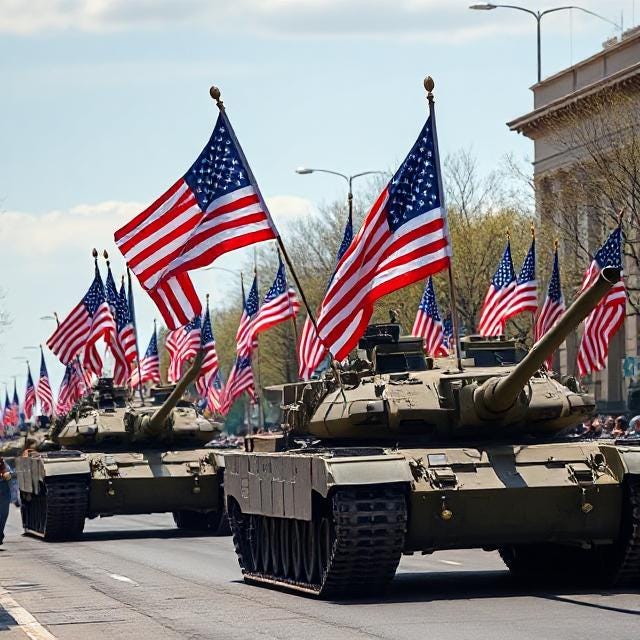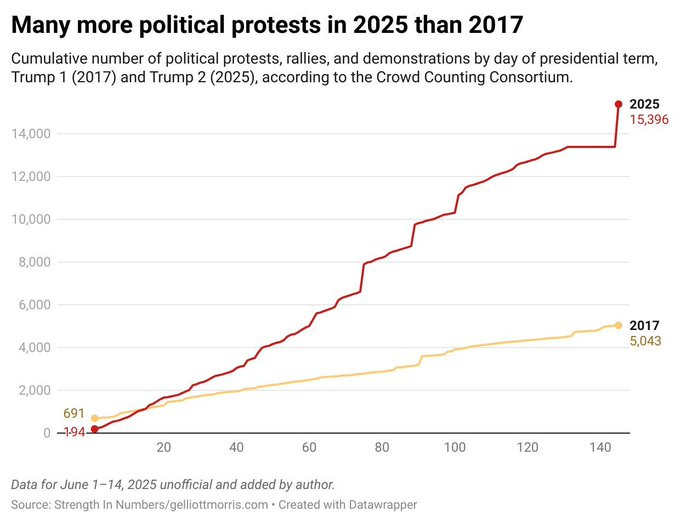The police state is here. The question is, how many will care?
When the tanks appear in the streets, it’s too late. Will we tolerate it?
When asked to contemplate a so-called “police state,” most will likely think of Nazi Germany. And they would be correct. That is probably the most quintessential example of a police state in the last century. Others might conjure present-day China, North Korea, Russia, Iran, or Egypt. Those would be acceptable examples as well, and there are others we could throw in the mix.
But the United States?
Proffer that and watch someone throw his head back with laughter.
When we think of “police states,” we imagine places without or with very limited, heavily monitored privacy, places where speaking out publicly against a regime in power could result in a kick in a door in the middle of the night and the presumed offender being disappeared to a foreign gulag, places where law enforcement and soldiers in the streets are to be feared.
How could anyone lump the good ‘ol U-S of A into that category? Where’s the evidence?
It has been creeping up for some time, but finally revealed its ugly head last month with the arrest of Newark, NJ mayor Ras Baraka and US Rep. LaMonica McIver outside an Immigration and Customs Enforcement (ICE) facility.
Then the convicted felon in the Oval Office thought he was really flexing some muscle with the unnecessary deployment of the California national guard and US Marines to quell so-called “riots” in Los Angeles protesting illegal ICE raids on immigrant communities.
Last week, Calif. Sen. Alex Padilla was assaulted for having the temerity to attempt to ask DHS Secretary and puppy killer Kristi Noem a question.
These three examples should be all we need to see the direction this country is going. If we think they’re isolated incidents, we’re showing our ignorance of historical precedent. They’re only the opening salvos in what will be an authoritarian police state of our own before the year is out—unless we, the people, stop it.
Democratic Rep. Ilhan Omar, in an interview with Democracy Now!, warned this week:
We are in the midst of the creation of a police state, where, you know, you have masked, armed men who are in plainclothes that are snatching people off the streets, unwilling to identify themselves. You have the military being deployed in our streets. My god, this is America. You have states’ rights being disregarded, so, you know, a constitutional crisis that’s being created in front of our eyes.
Rep. Omar might know a little something about authoritarian regimes having immigrated from Somalia, as she further explained:
I grew up in a dictatorship, and I don’t even remember ever witnessing anything like that, to have a democracy, a beacon of hope for the world, to now be turned into one of the — you know, one of the worst countries, where the military are in our streets, without any regard for people’s constitutional rights, while our president is spending millions of dollars prompting himself up like a failed dictator with a military parade.
We should all collectively be out in the streets rejecting what is taking place this week.
After being released from detainment, Sen. Padilla warned:
If this is how the Department of Homeland Security responds to a senator with a question, you can only imagine what they're doing to farmers, to cooks, to day-laborers throughout the Los Angeles community and throughout California and throughout the country.
Rep. LaMonica McIver, the New Jersey congresswoman arrested for allegedly assaulting law enforcement, stated this week:
This is a sad and frightening state of affairs. This administration will stop at nothing to keep elected officials from doing our jobs and demanding accountability for our constituents. We're seeing it in real time: They don’t want oversight, they want total control.
McIver would know. In addition to being wrongfully detained, she was indicted last week on three counts of "forcibly impeding and interfering with federal law enforcement officers".
If Sen. Alex Padilla’s name had been Alex Anderson, or if Rep. McIver was not an African American woman, would they have faced similar retribution for doing their jobs?
According to a recent piece on ProPublica, record numbers of local police agencies are joining ICE in deportation raids.
Authors Rafael Carranza, Arizona Luminaria, and Gabriel Sandoval explain:
At least 315 departments have signed on to the more aggressive approach, which Immigration and Customs Enforcement abandoned in 2012 amid racial profiling problems and lawsuits.
Overall, ICE initiated 514 new agreements with local law enforcement agencies across 40 states since January. Among the new partners are highway patrol troopers in Tennessee and officers with about 20 Florida agencies, who in recent weeks assisted ICE with the arrest of more than 1,300 people.
Syracuse University professor Austin Kocher, who has tracked the 287(g) Program, named for the section of law allowing limited immigration enforcement authority to local officers, explained:
There are a lot of people in this country who are going to be affected by this expanded police power, maybe even who aren’t immigrants, but who might get caught up in the system just because police think they’re an immigrant or because they’re conducting enforcement operations in places that affect U.S. citizens.
The concept of “competitive authoritarianism” is appropriate here. Steven Levitsky and Lucan A. Way conceived of the term over 20 years ago to describe a situation where the system maintains a patina of democracy but makes it virtually impossible opposition parties to win.
Levitsky states in a piece he wrote for The Atlantic in February:
Unlike in a full-scale dictatorship, in competitive-authoritarian regimes, opposition forces are legal and above ground, and they often seriously vie for power. Elections may be fiercely contested. But incumbents deploy the machinery of government to punish, harass, co-opt, or sideline their opponents.
Last month, Levitsky, Way, and political scientist Daniel Ziblatt wrote in The New York Times:
When citizens must think twice about criticizing or opposing the government because they could credibly face government retribution, they no longer live in a full democracy.
There is another name for this: anocracy—a political system that mixes democratic and autocratic elements, permits limited political participation, and practices incomplete methods to address grievances.
This weekend, a masked gunman disguised as a police officer shot and killed a Democratic Minnesota state representative and her husband, and wounded a Democratic state senator and his wife in what Gov. Tim Walz has determined to be an "act of targeted political violence".
When the tanks appear in the streets, it’s too late.
Even then, though, there will be those inclined to shrug it off and explain it away: “They aren’t here for me.” “It’s only temporary.” And the best excuse: “They’re keeping us safe.”
Most of us (hopefully) aren’t okay with it, and can see the writing on the proverbial wall.
We are in a police state.
As heinous as these acts are, the question we must ask ourselves is, will we tolerate it?
Saturday’s “No Kings” rallies and marches strongly suggest we will not. America has stared down autocracy before. We are doing it again now.
But we must be unrelenting in our opposition.
The police state will only escalate if we pretend it won’t.






